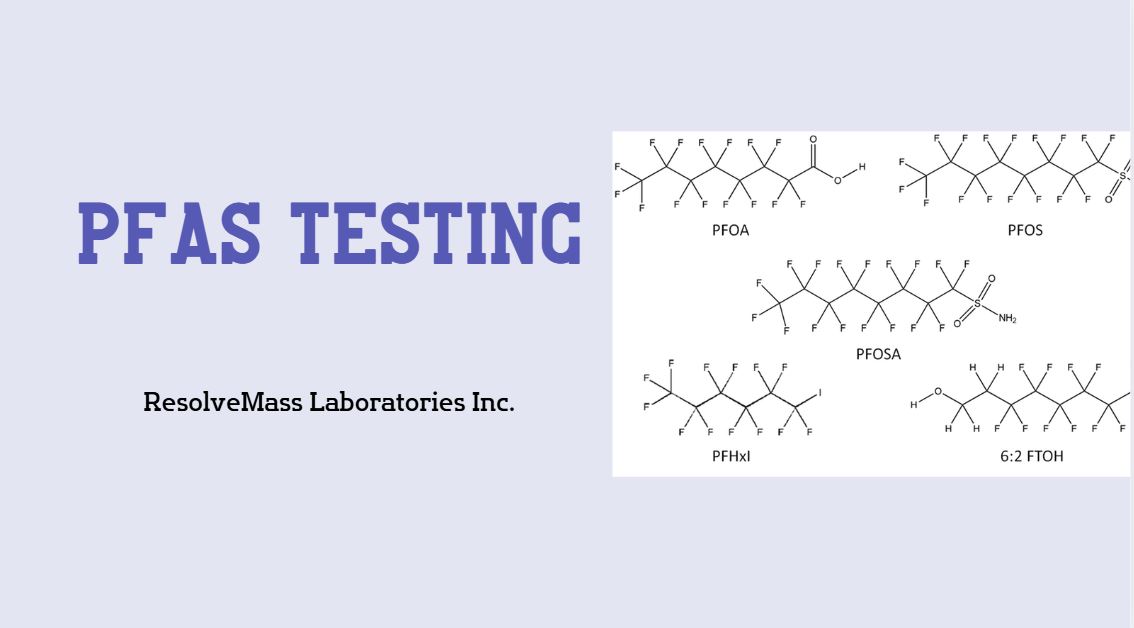Peptides are playing a bigger role in modern medicine, especially in drug development, diagnostics, and therapeutic research. At ResolveMass Laboratories, we specialize in Peptide Characterization Techniques and Applications to support these growing needs. Our services are designed to be accurate, reliable, and fully compliant with regulatory standards. From early-stage discovery to late-phase regulatory submissions, we help ensure that each peptide is properly analyzed for identity, purity, and stability.
Our expertise in peptide characterization techniques and applications allows us to support pharmaceutical companies, biotech firms, and research organizations. We use advanced technology and globally accepted methods to analyze peptides with precision. Whether you’re preparing an IND or NDA, or developing peptide-based therapies, ResolveMass offers the scientific support you need for success.
👉 Learn more about our specialized services:
Peptide Characterization for IND and NDA
Peptide Characterization Services in Canada
Advanced Peptide Characterization Techniques
What Is Peptide Characterization?
Peptide characterization refers to the detailed study and analysis of peptide molecules to confirm their structure, composition, and biological activity. Since peptides are made up of amino acids linked by peptide bonds, any variation in structure or purity can impact their effectiveness. Therefore, understanding every detail of a peptide is essential before it can be used in medical treatments or diagnostics.
Peptide characterization uses advanced techniques to confirm that a peptide is accurate, pure, and safe. It also checks how the peptide performs under different conditions, like temperature or pH changes. At ResolveMass, we use validated, regulatory-approved methods to deliver reliable and precise results. Our data meets international standards, including those from the FDA, EMA, and Health Canada. We work closely with clients from early research stages to final regulatory submissions. Each peptide is carefully analyzed to support its use in both clinical trials and commercial products.
Why Is Peptide Characterization Important?
Peptide characterization is more than just a routine test. It plays a critical role in making sure peptide-based drugs are safe, effective, and consistent. With peptides used in sensitive therapies, such as cancer treatments and vaccines, even small errors can have serious effects on patient safety and product performance.
One of the main reasons for detailed peptide analysis is to meet the strict requirements of regulatory agencies. Organizations like the FDA need reliable data for IND and NDA submissions. Peptide characterization also ensures that each production batch stays consistent in quality and structure, which supports stable therapeutic results. Advanced testing helps detect impurities and degradation early, reducing risks during development. Overall, this process improves product stability and builds confidence in the safety and effectiveness of peptide-based drugs.
For comprehensive regulatory support, explore our:
Peptide Impurities Characterization Services
Core Peptide Characterization Techniques and Applications
At ResolveMass, we use a combination of techniques to perform peptide characterization with the highest accuracy. These methods are chosen based on the peptide’s structure, use, and development stage. Each technique helps provide a complete view of the peptide’s quality.
1. Mass Spectrometry (MS)
Mass spectrometry is a powerful tool used to determine the molecular weight and identity of peptides. It helps detect even small impurities or changes in the peptide structure. Our lab uses both LC-MS/MS and high-resolution MS systems for in-depth analysis.
We apply MS to confirm peptide sequence, identify post-translational modifications, and analyze degradation patterns. This information is especially useful when preparing data for regulatory submissions or troubleshooting formulation issues.
🔗 Related Service: Advanced Peptide Techniques
2. High-Performance Liquid Chromatography (HPLC)
HPLC is a standard method used to separate and analyze the components of a peptide mixture. It is essential for checking peptide purity and identifying unwanted by-products or isomers. Our lab uses validated protocols that are tailored to regulatory standards.
We utilize both reverse-phase and ion-exchange HPLC techniques to deliver precise results. This helps researchers and developers confirm that their peptides meet purity and safety requirements before moving to clinical stages.
3. Amino Acid Analysis
Amino acid analysis provides information about the number and type of amino acids present in a peptide. This is important to confirm the correct peptide composition and synthesis accuracy. At ResolveMass, we use derivatization and UV detection to ensure precise measurements.
This technique is especially useful for confirming the success of peptide synthesis. It can also help detect any missing or extra amino acids that may affect the peptide’s performance or stability.
4. Circular Dichroism (CD) Spectroscopy
CD spectroscopy helps analyze the secondary structure and folding behavior of peptides. Knowing how a peptide folds is critical because its structure often determines how well it functions in the body.
We combine CD with other methods like FTIR (Fourier-transform infrared spectroscopy) to study peptide stability under different pH levels, temperatures, or storage conditions. This helps in designing stable formulations and predicting shelf life.
5. Peptide Mapping
Peptide mapping is used to verify the sequence of the peptide and check for any structural inconsistencies. It involves breaking down the peptide using enzymes and analyzing the resulting fragments.
This method helps ensure the peptide was synthesized correctly and is especially important when submitting data to regulatory authorities. At ResolveMass, we perform peptide mapping using high-quality enzymatic digestion and analysis tools.
🔗 Learn more about our mapping techniques: Peptide Characterization in Canada
Applications of Peptide Characterization in Drug Development
The use of peptide characterization techniques and applications spans across many parts of drug and diagnostic development. Whether you’re preparing a regulatory submission or exploring a new therapeutic, detailed peptide analysis is essential.
1. Regulatory Submissions (IND/NDA)
We provide complete analytical documentation that supports Investigational New Drug (IND) and New Drug Application (NDA) filings. Our reports follow ICH guidelines such as Q6B and Q3A/B and are accepted by major global regulatory bodies.
🔗 Peptide Characterization for IND & NDA
2. Peptide Vaccines
Our team helps validate the structure and stability of peptide antigens used in vaccines. This ensures that the vaccine triggers the right immune response and remains stable throughout storage and distribution.
3. Personalized Medicine and Diagnostics
We assist clients working on custom peptide biomarkers for diagnostic or therapeutic use. Our analysis confirms the peptide’s stability, binding ability, and overall suitability for use in targeted applications.
4. Stability Testing
ResolveMass conducts forced degradation studies to assess how peptides perform under stress. We test against variables such as temperature, pH, oxidation, and light exposure to predict long-term stability and shelf life.
5. Biosimilar Peptides
We provide side-by-side comparisons between test peptides and reference products. This is essential when developing biosimilars, helping to prove that the new product is analytically similar to the original.
🔗 Discover our full range of services:
https://resolvemass.ca/peptide-characterization-service-in-canada/
Why Choose ResolveMass Laboratories?
When it comes to peptide characterization techniques and applications, ResolveMass is a trusted partner for pharmaceutical, biotech, and academic clients. We don’t just offer tests—we provide scientific insight that supports your goals from concept to market.
With over 50 successful IND and NDA submissions across North America, our track record speaks for itself. Our team includes PhD-level scientists with expertise in peptide analytics and regulatory science. Each project is handled with care, precision, and confidentiality.
We are a Canadian laboratory with international reach, offering fast turnaround times and custom consultation services. Whether your peptide is standard, cyclic, PEGylated, or modified, we have the tools and knowledge to analyze it accurately.
📩 Need custom solutions? Speak with our experts today:
Contact Us
Contact Form – Get A Quote
Book Your Free Consultation
FAQs
Some common techniques include mass spectrometry (MS), high-performance liquid chromatography (HPLC), amino acid analysis, circular dichroism (CD), and peptide mapping. These methods help confirm the peptide’s identity, purity, and structure. Together, they provide a complete view of the peptide’s quality.
Mass spectrometry helps determine the molecular weight of a peptide and confirms its identity. It can also detect tiny impurities or chemical changes that might affect how the peptide works. This makes it one of the most reliable tools in Peptide Characterization Techniques and Applications.
Yes, advanced methods like HPLC and MS can detect even small amounts of impurities or breakdown products. Identifying these early helps improve product quality and reduce safety risks. This is especially important for regulatory approval and long-term product success.
Yes, all our peptide testing follows Good Laboratory Practice (GLP) and international guidelines like ICH. Our reports are accepted by major agencies including the FDA, EMA, and Health Canada. Compliance ensures your data is trustworthy and ready for submission.
The typical turnaround time is between 2 to 6 weeks, depending on the complexity of the peptide. For urgent projects, we offer expedited testing services. Our team ensures that you receive accurate results on time without compromising quality.
Absolutely. We work with all kinds of peptides, including cyclic, PEGylated, and chemically modified versions. Our flexible approach allows us to adapt the testing methods to match your specific peptide needs.
You can contact our team directly via the Contact Us page. We offer free consultations and customized pricing based on project scope.
Conclusion
Peptide-based drugs and diagnostics require detailed testing to ensure safety and performance. With our experience in peptide characterization techniques and applications, ResolveMass Laboratories offers the tools and expertise to guide your peptide through every development phase.
Our reliable methods, regulatory knowledge, and scientific accuracy make us the partner of choice for clients across the globe. If you’re working on a peptide product and need trusted analytical support, we’re here to help—every step of the way.
🔗 Ready to begin your project? Reach out:
Contact Page | Talk to a Specialist


